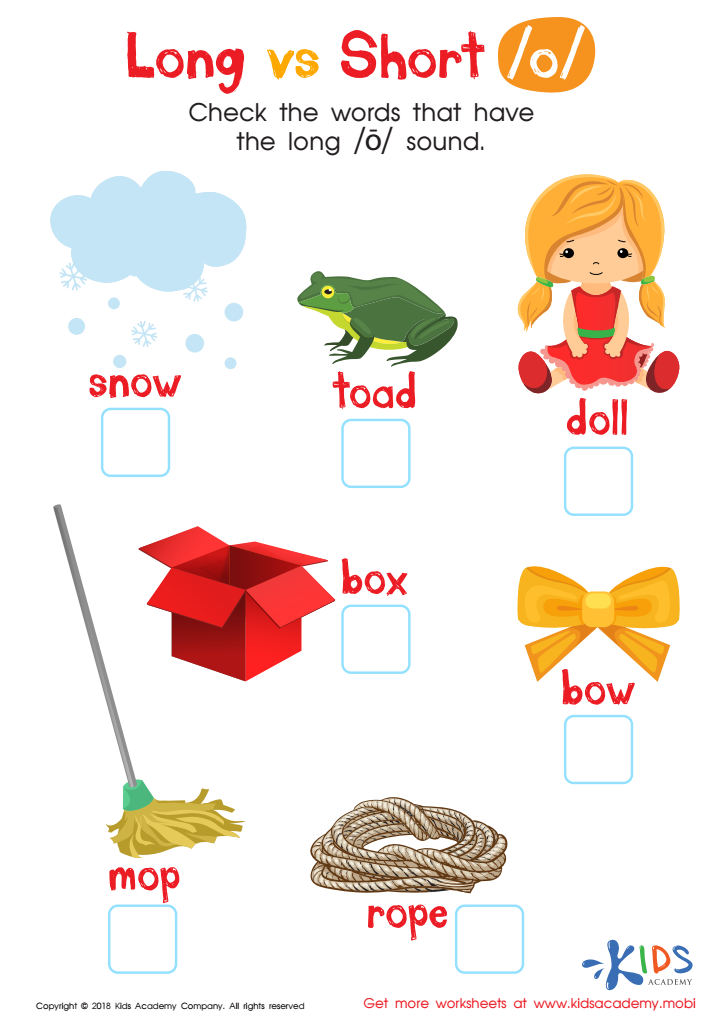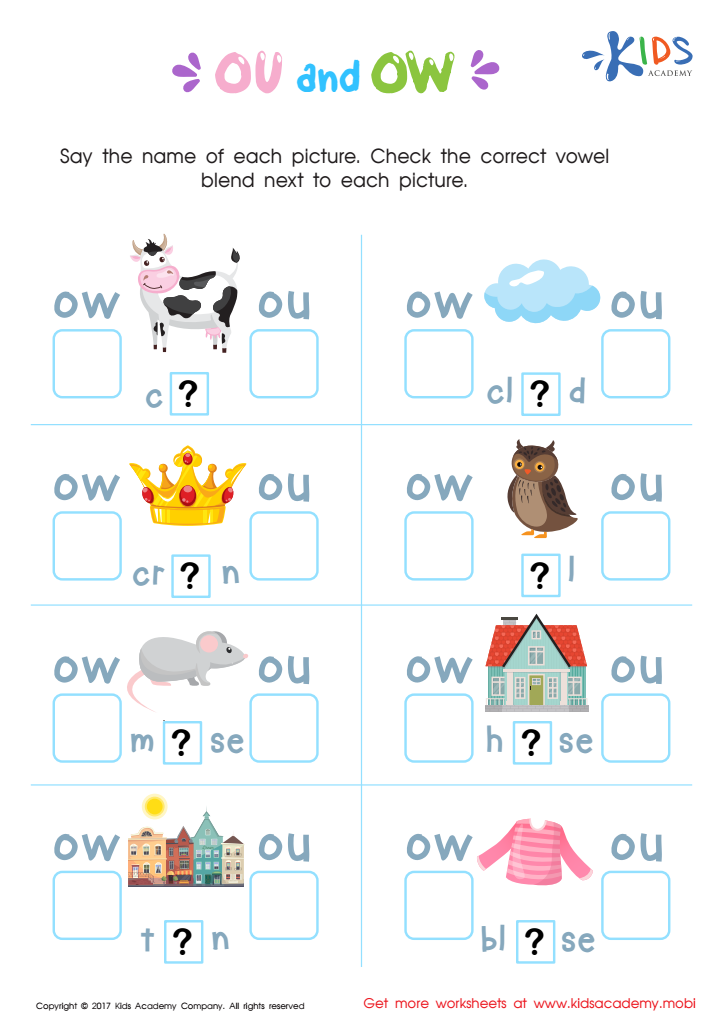Sound differentiation Normal Alphabet Worksheets
3 filtered results
-
From - To
Enhance your child’s phonetic skills with our engaging "Sound Differentiation Normal Alphabet Worksheets." These expertly crafted resources are designed to help young learners distinguish various letter sounds while reinforcing their understanding of the alphabet. Tailored for early grade students, each worksheet combines fun activities like matching, coloring, and trace-the-letter exercises to build core phonemic awareness. Perfect for classroom use or home practice, our worksheets ensure a robust learning experience, fostering confidence in reading and spelling. Encourage your child's journey to literacy with these effective and enjoyable sound differentiation worksheets. Transform learning into an exciting adventure today!


Long vs Short O Reading Worksheet


Long and Short Vowel Sentences: Assessment Worksheet


OU and OW Words Worksheet
Parents and teachers should prioritize sound differentiation in the normal alphabet because it forms the foundation of effective reading and writing skills. Sound differentiation, also known as phonemic awareness, involves recognizing and distinguishing between different sounds (phonemes) in words. This ability is crucial for decoding new words, spelling accurately, and developing fluent reading.
Equip children with strong phonemic awareness
First, children who can effectively differentiate sounds can better grasp the relationship between letters and sounds. This understanding, called the alphabetic principle, is vital for decoding words during reading. It reduces guessing and allows for more accurate and fluid reading.
Improves spelling and writing skills
Additionally, sound differentiation enhances spelling skills. When children can discern individual sounds in words, they are more likely to spell them correctly, reducing frustration and boosting confidence in writing.
Early intervention promotes confidence and interest in reading
Furthermore, early mastery of sound differentiation can prevent reading difficulties later. Children who struggle with phonemic awareness often face challenges in reading comprehension and academic success. Early support can bridge these gaps, fostering a positive attitude toward learning.
Investing in phonemic awareness ensures a strong literary base, giving children confidence and success in reading and writing. Together, these skills pave the way for a child’s academic achievements and lifelong learning.
 Assign to My Students
Assign to My Students












